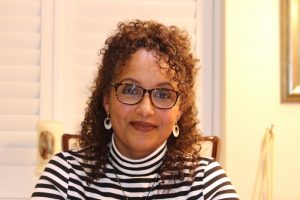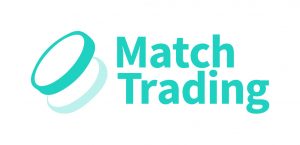The future is bright for SSE – Yeshi Abay
6 Apr 2023
On April 3rd, our own head of finance, Yeshi Abay, was interviewed by Léa Legraien from www.civilsociety.co.uk , about the Match Trading initiative and how SSE supported hundreds during Covid-19.

A few months into the pandemic, SSE joined forces with Big Issue Invest, the Key Fund, Community Land & Finance CIC (also known as Resonance) and UnLtd to deliver the Social Enterprise Support Fund (SESF).
SESF, a two-year initiative financed by the National Lottery Community Fund, aimed to help social enterprises in critical need of funding weather the storm of Covid-19 and become financially resilient.
Yeshi Abay who joined SSE as head of finance in November last year, comments: “Together, we distributed £18.7m, with £2.8m distributed by SSE in a period of 14 weeks, which was quite intensive for the team.”
Abay says all partners committed to ensuring that the funding would reach communities who had been “heavily” hit by the crisis.
As a result, 83% of grants awarded by SSE went to social enterprises led by and/or supporting racialised and minoritised communities, LGBTQ+ communities, disabled people and leaders with lived experience.
A bumper year and Match Trading
SSE’s accounts show that its income has hugely increased over the past few years. In 2021, it grew to £8.6m, up from £5.2m the previous year and £3.9m in 2017.
As the social enterprise continued to distribute more grants last year, its income increased by £0.7m to £9.4m while expenditure rose by £1m to £9.5m.
Abay says that SSE was “really proud” to have joined the other social enterprise support agencies to deliver SESF, a programme that explains why there was a bump in income recently.
Chief executive officer Alastair Wilson wrote in SSE’s latest accounts that he expects income and expenditure levels to “settle back to a more typical position” in future years as SESF was a one-off programme.

Back in 2017, Match Trading appeared as an innovative type of grant funding that rewards sales growth by matching that increase in income from trading pound for pound. It incentivises social organisations to sell more products or services so that they can become stronger while their impact lasts longer.
Since their launch, Match Trading grants have helped more than 600 social organisations which increased their trading income by 64% within one year.
“It’s definitely a success story for SSE. What’s amazing about Match Trading is that it encourages social entrepreneurs to develop their trading income and become more financially resilient. This means reducing dependency on traditional grants from foundations. The more funding social organisations want to get, the more trading they need to do. It’s not about profit, it’s about reinvesting in the communities they’re serving. We believe it’s the future of grantmaking.”
She gives the example of Breadwinners, a grassroots social enterprise that supports young refugees into work. She says the organisation has experienced a 215% growth since joining the SSE programme and receiving a Match Trading grant.
A changing digital world
The pandemic forced many social enterprises and charities to quickly rethink how they were operating before the crisis. For SSE, this meant drastically changing the way it was delivering its programmes.
Abay says: “100% of SSE’s programmes used to be delivered face to face, so you can imagine when Covid-19 hit and everything locked down everything stopped for SSE.
“SSE didn’t have the expertise or the technology to deliver those programmes online so it had to work hard, almost overnight, to deliver these online. It was successful but that made the board realise that there was a delay in terms of digital transformation so they invested more money to make sure we were equipped with the right technology to deliver our programmes.”
Internally, one of SSE’s strategic objectives over the coming years is to accelerate its digital transformation. “We’re making quite good progress and are on target to deliver our strategy,” Abay says. The change to the new finance system, will be cost-saving and efficient, but it’ll also maximise SSE’s income.
SSE is also on track towards diversifying its income streams, which it hopes will increase from four or five to around 25.
Abay concludes: “It’s only been a few months since I joined but I am confident about our financial stability. The future is bright for SSE as we position ourselves to continue to deliver our strategy.”
Feeling at home
Abay says the organisation immediately made her feel at home. She values how “caring” the social enterprise to its own employees.
Until she began working at SSE, Abay did not fully understand the difference between social enterprises and charities but now reckons that they are very different.
She adds social enterprises, which also create “social benefits”, tend to do it in a way so that the communities they serve can be “less dependent and more creative”.
Inclusion is key
As a Black Ethiopian woman, with a “heavy” accent, Abay admits that she has sometimes struggled in her career. There is also an assumption in her culture, she says, that women cannot juggle family life and work.
But she feels blessed to have had a father who always told her to be independent.
“I think it’s more diverse and that’s been my experience as both a trustee and head of finance.”
SSE’s anti-racist efforts have resulted in the organisation supporting more Black social entrepreneurs and changemakers alongside those from mixed and multiple ethnic backgrounds.
Since January 2021, the organisation has increased the proportion of Black entrepreneurs it supports from 11% to 14% and the proportion of entrepreneurs from mixed and multiple ethnic backgrounds from 2% to 5%.
It is also making progress on diversifying its staff team, including at senior level, with the percentage of people from Black and minoritised ethnic backgrounds rising from 15% to 17% between September and December last year.
Click here for the full interview.
